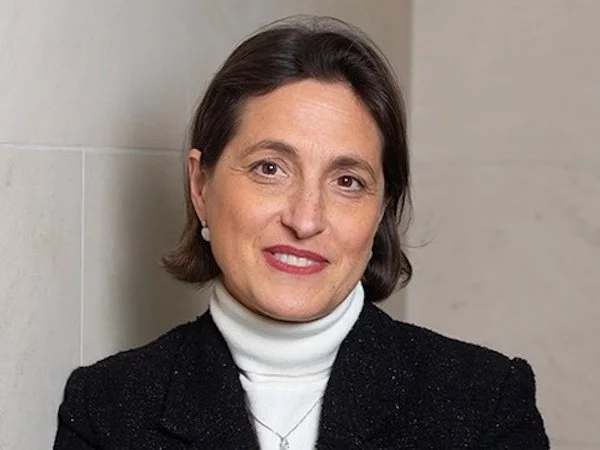Syria’s Future Depends on its Women
After years of devastation and Bashar al-Assad’s eventual departure, Syria finds itself facing a familiar question : how to rebuild a nation fractured by violence, corruption, and exile ? Ranim Cheikh Omar, a Master's student in International Development at PSIA, shares her perspective on the challenges and opportunities for postwar Syria through a gendered lens.
Par Ranim Cheikh Omar
A core dimension
International leaders and local actors alike speak about stability, economic recovery, and political reform. Yet the crucial question, the one that will determine Syria’s future far more than the next election or investment deal, remains dangerously overlooked : Will women be placed at the center of Syria’s reconstruction, or will they once again be pushed aside ? I raise this question not from academic distance, but from personal experience. In 2012, as Syria disintegrated into war, my family fled to Cairo. Later, I came to France to study political science and economics at Sciences Po Paris, seeking to understand the mechanisms of conflict, displacement, and recovery. Along the way, my academic studies, combined with my lived experiences, taught me a fundamental truth: no nation can heal itself if it rebuilds on the same foundations of exclusion and inequality that once fueled its collapse.
“« No nation can heal itself if it rebuilds on the same foundations of exclusion and inequality that once fueled its collapse »”
Syria’s future depends on how seriously it takes the imperative of gender justice, not as an afterthought, but as the core of reconstruction. The evidence is overwhelming. UN Women’s 2022 progress report on Women, Peace and Security reaffirms that peace agreements inclusive of women are significantly more durable, while reconstruction efforts that integrate women’s perspectives lead to more sustainable economic growth and stronger governance. Scholars such as Cynthia Enloe and Carol Cohn, even decades earlier, exposed how post-conflict societies often fail by militarizing political power and sidelining women’s agency. Recent studies from the Arab Reform Initiative, including their 2023 report on gender and economic resilience in the Levant, highlight how Middle Eastern postwar societies continue to marginalize women systematically during “recovery” processes, entrenching long-term instability.
In Syria, these dynamics are even more acute. Gendered violence was not a mere side effect of war; it was a calculated weapon of control. Systematic detention of women, sexual violence, economic disempowerment, and political exclusion were central tactics of the conflict. These wounds are not healed simply by ending the fighting. They must be directly addressed in the structures of rebuilding, or else they will corrode any peace we attempt to construct.
“« Gendered violence was not a mere side effect of war ; it was a calculated weapon of control »”
During my years as a refugee in Cairo, I witnessed how Syrian women led the invisible work of survival. They created informal schools, launched small businesses, cared for shattered communities, and built solidarity networks across cities and borders. Their leadership was not formalized; it was necessity-driven, grassroots, and powerful. Yet even now, as international donors and Syrian authorities speak of rebuilding, the risk is clear : the very women who held Syrian society together during its darkest years may once again be rendered invisible in its supposed rebirth.
A call for a systemic transformation
Rebuilding Syria must mean more than reconstructing roads and buildings. It must mean reconstructing citizenship, justice, and participation, and women must be architects, not bystanders, in that process. This requires systemic transformation, not cosmetic gestures. It demands comprehensive gender audits of all major reconstruction projects to ensure they do not replicate exclusion. It requires and reform policies that explicitly secure property rights for displaced and widowed women, ensuring they can own, inherit, and invest in their country’s future. It calls for a complete redesign of economic recovery programs to recognize unpaid care work and prioritize women’s economic empowerment at all levels, not as charity, but as a necessary pillar of national growth.
Furthermore, Syria’s education system must be rebuilt with a new social contract in mind. Curriculum reform must actively dismantle the militarized, patriarchal narratives that pervaded the pre-war and wartime periods. If we rebuild schools without changing what they teach, we are simply educating a new generation to repeat the cycles of the past. Critically, these transformations must be Syrian-led, but internationally supported. Donors and international agencies have often paid lip service to gender inclusion while continuing to fund projects that marginalize local women’s groups and bypass genuine community leadership. As feminist thinkers like Nadje Al-Ali have pointed out, especially in her recent reflections on the Arab uprisings, external “gender mainstreaming” ; initiatives frequently fall into the trap of being imposed, technocratic solutions rather than organic, empowering ones.
“« If we rebuild schools without changing what they teach, we are simply educating a new generation to repeat the cycles of the past. »”
My experience, shaped by forced displacement, exile, academic study, and direct witnessing of women’s resilience, leaves me in no doubt : Syria does not need more resilience in surviving injustice. It needs transformation that uproots injustice. A Syria rebuilt without women, without their voices, visions, and leadership, will not be a Syria at all. It will be a hollow state, trapped between ruins and repression. A Syria rebuilt with women at its heart can become a model, not of perfection, but of real possibility : a nation that breaks from its legacy of authoritarianism, violence, and exclusion.
There is no shortcut. Infrastructure can be rebuilt by contractors. Institutions can be rebuilt by officials. But trust, dignity, citizenship, these can only be rebuilt when those who were systematically silenced are given not just a seat at the table, but the power to reshape the table itself.
Syria’s survival depends on nothing less.




